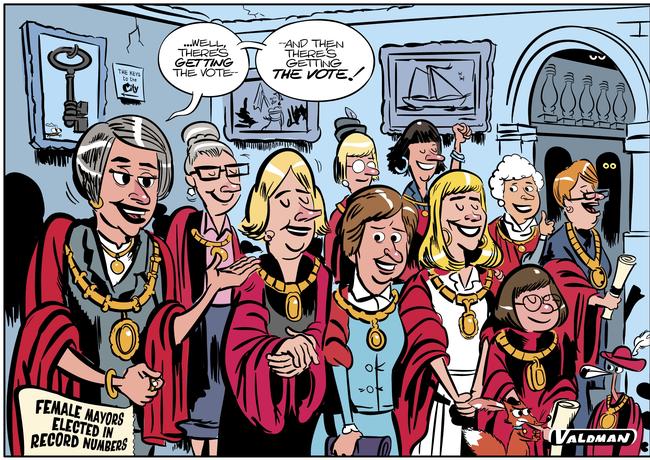The Advertiser Editorial, November 15, 2018: Act now to fix oppressive secrecy laws
It is one thing for the ridiculously restrictive laws governing the ICAC’s operations to prevent the media from publishing basic details of investigations. But it goes beyond farcical when the Attorney-General finds herself at risk of being guilty of breaching the ICAC Act.
It is one thing for the ridiculously restrictive laws governing the Independent Commissioner Against Corruption’s operations to prevent the media from publishing basic details of investigations within the public sector about which taxpayers have a right to know.
It goes beyond farcical, though, when the state’s top lawmaker, Attorney-General Vickie Chapman, finds herself at risk of being guilty of breaching the ICAC Act, simply for trying to shed some very little light on something that is in the public’s interest.
The machinery of secrecy and spin embedded within the machinery of government is now so widespread and intricate that ministers are tripping over it.
The Advertiser today reveals anti-corruption detectives are conducting a probe into whether Ms Chapman has breached the strict secrecy provisions of the ICAC Act. Detectives have launched a preliminary assessment of the matter and are currently examining the available evidence. Once that assessment has been finalised a decision on whether or not a full investigation is warranted will be made by senior officers.
Investigators were in the process of examining a public statement made by Ms Chapman concerning an ICAC investigation involving Renewal SA executives, Independent Commissioner Against Corruption Bruce Lander QC and legal opinions commissioned by both the government and Opposition concerning the possible breach of the ICAC Act.
The police assessment is examining the actions of Ms Chapman on September 27, when she revealed details of an ICAC investigation involving executives from Renewal SA.

Under the strict provisions of the ICAC Act the fact Commissioner Lander is conducting an investigation cannot be revealed, unless he issues an exemption authorising such a publication.
The day after Ms Chapman’s statement, Mr Lander said his recollection of a conversation with Ms Chapman before her statement was that she would not include reference to the ICAC. In light of her statement, he stated his position and authorised her statement.
A legal opinion commissioned by the Opposition found Mr Lander cannot give retrospective exemption from the ICAC Act’s secrecy laws.
This is a labyrinthine saga but the public interest issue is extremely simple. It is farcical in the extreme that the state’s chief lawmaker should be at risk of legal sanction for revealing extremely scant details of an ICAC investigation.
The public interest lies in openness and transparency.
The argument for tight secrecy laws is to protect the presumption of innocence of those facing ICAC investigations. Of itself, this is not unreasonable. But the con-sequences of this onerous regime are quite severe. Necessary transparency is unduly restricted.
There will now be calls for Ms Chapman to step aside, given the preliminary assessment by police. This would be premature and ill-advised. Instead, she should immediately move to reform the ICAC Act to loosen the secrecy provisions of which she might fall foul. While this might provoke criticism, the greater good would be served by correcting a past legislative overreach.


